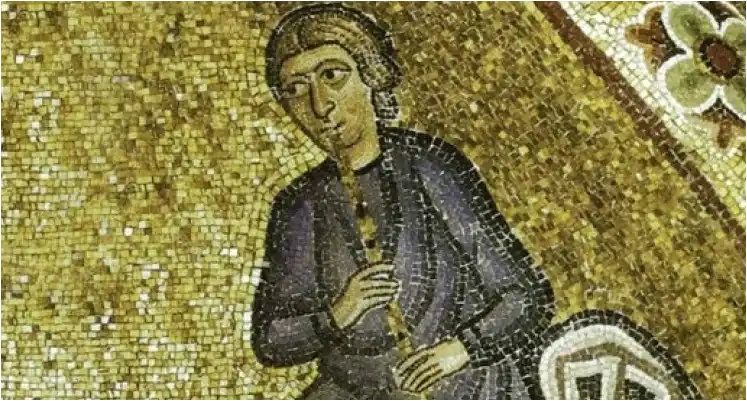For the inhabitants of the Eastern Roman Empire, whom we call Byzantines, their identity was not a matter of debate: they were Romans (*Rhomaioi*). This concept of ‘Roman-ness,’ or *Romanitas*, was the central pillar of their self-perception, a legacy inherited directly from the ancient Roman Empire. However, understanding what it meant to be Roman in Byzantium requires exploring a complex identity built on three interconnected elements: a Roman state structure, Greek culture and language, and the Orthodox Christian faith. This fusion created a unique civilization that saw itself as the rightful heir to both Augustus and the Apostles.
Table of Contents
🏛️ The Unbroken Chain of the Roman State
At its core, the Byzantine claim to Roman identity was based on an unbroken political and legal continuity. The empire was not a ‘successor state’ but a direct continuation of the Roman Empire, with its capital shifted to Constantinople. The emperor (*basileus*) was the legitimate successor to Augustus, and the state was governed by the principles of Roman law, codified most famously by the Emperor Justinian. This institutional framework was the bedrock of their identity. To be Byzantine was to be a citizen of the Roman state, a subject of the Roman emperor, and a participant in a political tradition that stretched back over a thousand years. This was not a nostalgic claim; it was a lived political reality.
🗣️ The Hellenic Mind: A Greek Cultural Sphere
While the state was Roman, the cultural and linguistic fabric of Byzantium was overwhelmingly Greek. After the seventh century, Greek replaced Latin as the official language of the administration and the military. More profoundly, the Byzantine intellectual world was steeped in Hellenic culture. Scholars and theologians were educated in the works of Homer, Plato, and Aristotle. This deep engagement with classical Greek learning was not seen as a contradiction to their Roman identity but as an integral part of it. They were Romans who spoke and thought in Greek, viewing the classical past as their own cherished heritage, which they had a duty to preserve and build upon.
✝️ The Orthodox Faith: The New Chosen People
The final and perhaps most crucial element of Byzantine identity was Orthodox Christianity. After the conversion of Constantine, the Roman Empire was gradually redefined as a Christian empire. The Byzantines saw themselves as God’s chosen people, and the emperor was viewed as God’s vice-regent on Earth, tasked with protecting the true faith. Orthodoxy permeated every aspect of Byzantine life, from imperial ceremonies to the art that adorned their churches. This religious dimension transformed their Roman identity, infusing it with a sense of divine mission and setting them apart from the ‘barbarian’ peoples outside the empire and the ‘heretical’ Christians of the West.
—
James, Liz, editor. A Companion to Byzantium. Wiley-Blackwell, 2010.
More Topics
- Curses: The History of the Evil Eye and Binding Magic
- Magical Plants: A Witch’s Garden of Herbs and Poisons
- Roman Magic: Curses, the Strix, and Everyday Protection
- Circe: The Greek Sorceress of Transformation and Myth
- Greek Magic: Hecate’s Power, Oracles, and Enchantresses
- Japanese Magic: Yōkai, Onmyōdō, and Supernatural Folklore
- Empress Chen Jiao: The Royal Scandal of Witchcraft in Han China

